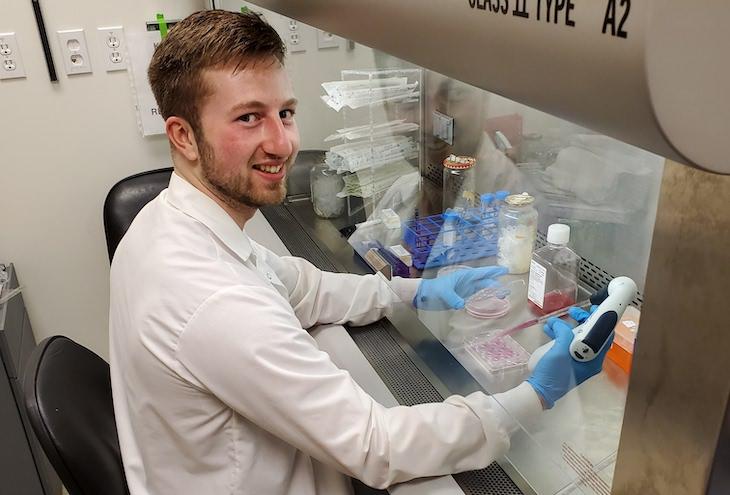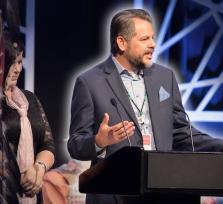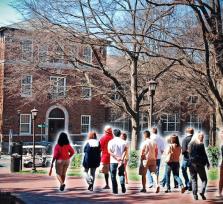When she was young, Connor Keane’s mother moved more than 2,000 miles from her home community of Corner Brook, Newfoundland, to Yellowknife, Northwest Territories, to find work that would support her family. Through perseverance and determination, Keane’s mother overcame the challenges of being uprooted from her home and opened a store in Yellowknife to sell a variety of goods to the local community.
Keane is trying his best to follow in her footsteps: to work hard and be courageous in chasing his goals. “My parents have always guided me to choose education and career goals that I am truly passionate about,” Keane says. Through their determination and strength, they have shown him that his goals are attainable.
He grew up in British Columbia and finished elementary and high school in Surrey, outside Vancouver, where he lives with his older brother and parents. His passion for biology and chemistry in high school led him to aspire to be a doctor. “I have seen the impact physicians can make for a family firsthand,” Keane says. “This has motivated me to be an advocate for peoples’ health.” He hopes to be able to provide support for Indigenous families and communities.
With that goal, and his fascination with the complexity of the immune system, he enrolled in the microbiology and immunology program at the University of British Columbia (UBC). During his first year, Keane often found himself delving into research beyond the learning objectives of his classes. When he was finally able to attend microbiology symposiums and research presentations at UBC, he knew he had chosen the right major.
Still, the transition from high school to university came with a steep learning curve. Keane found himself constantly adjusting study strategies and working hard to find a schedule that would let him keep up academically. That first year was quite difficult, but after he learned what his professors expected of him and perfected his study strategies, academic work became more enjoyable.
At UBC he found a mentor in immunology researcher Dr. Michael Gold, and has been working in the Gold lab for the past two and a half years studying B cells — the cells that make antibodies. “Dr. Gold’s guidance and support have helped me develop the skills and knowledge to think critically in my lab and course work, and progress as a scientist,” Keane says. Learning lab maintenance techniques from the ground up helped him be independent and efficient in his work. Under the direction of Dr. Gold, Keane assisted in completing experiments for a recently published paper investigating the role of actin, an important component of the B cell cytoskeleton, in B cell functions. Last year, he was able to present his research at the AISES in Canada National Gathering in Saskatchewan.
Keane joined the UBC AISES College Chapter in January 2019, and starting in December 2019, served as co-president. He made it his goal to encourage Indigenous students to pursue education and careers in the STEM fields. Last year, the UBC Chapter was able to host Indigenous STEM Day in British Columbia, an all-day event for Indigenous youth, university students, and professionals. He also spent a few summers volunteering at a two-week summer camp that lets Indigenous youth experience life on a university campus through a variety of science workshops hosted at UBC.
Keane’s outreach hasn’t been limited to encouraging young people in STEM. He also co-founded a nonprofit program that provides music lessons for elderly people and refugee children. “I was lucky to be able to learn guitar and bass from a young age, and I believe that everyone should have the chance to play a musical instrument,” he says.
With his music, his academic achievements, and his community service, Keane has racked up many accomplishments. But he is not ready to declare himself satisfied, saying, “I always believe that there is room for improvement.”














